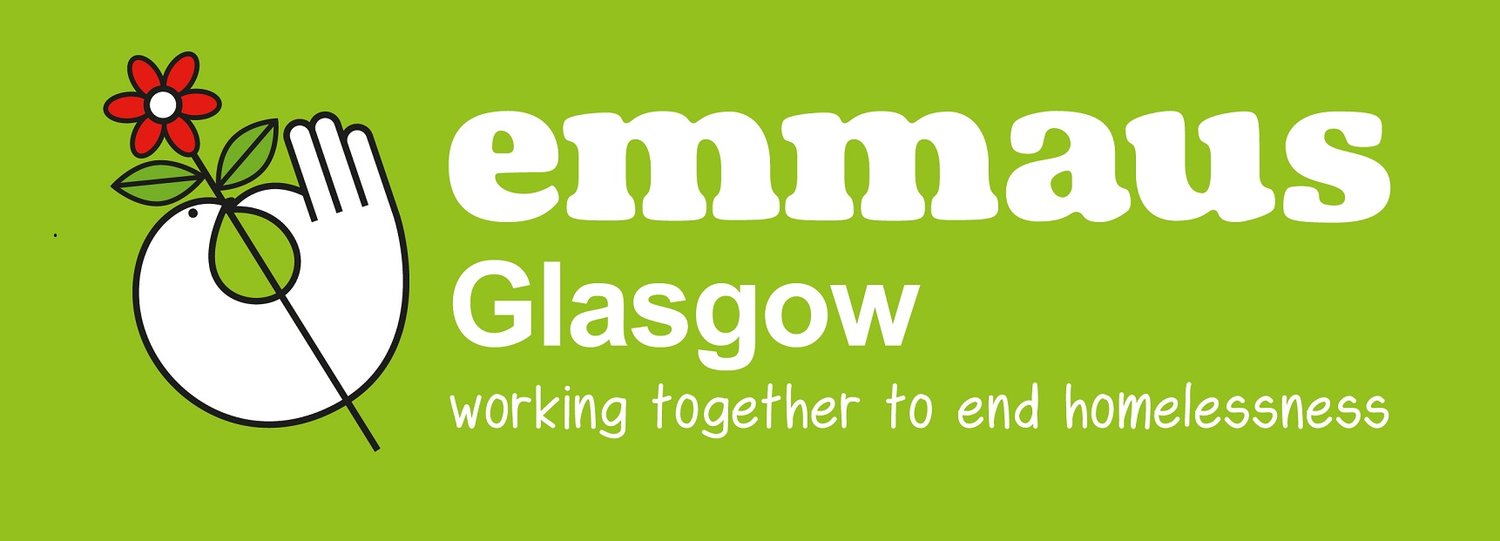We believe that people who are homeless and socially excluded have something to offer. We encourage people to use their skills to change themselves – and change the world!
The Emmaus community in Glasgow opened in 2006 and now operates a residential community of 27 former homeless men and women (“companions”) and a recycling/reuse business with two retail charity shops – Partick and Hamiltonhill in Glasgow.
We work closely with other organisations in the area to support those people who are homeless or trapped by poverty and to help them to develop skills and self-respect through working and contributing.
As well as working for the community business, companions are supported in whatever way they need to address the issues that have brought them into Emmaus, and encouraged to look outside themselves, working in projects to help others in the neighbourhood, and much further afield.
Our companions have been involved locally with Get Hooked on Fishing, volunteering at the soup run, distributing The Pavement Magazine, as well as helping support other local charities in Glasgow. Also through our links with the Emmaus International Movement, in projects in Benin, West Africa and Bosnia.
Emmaus offers a home
Emmaus offers homeless people a place where they can feel safe and secure, where they can enjoy companionship and the support of a community.
Each person has his or her own comfortable room, whilst living and working in the community. Everyone is accepted for who they are now, not judged on what they might have been. There are no conditions as to length of stay: a person can stay for as long as they need.
Above all, Emmaus is a way out of the humiliation of homelessness; a way that offers hope, care and a future.
Emmaus Communities offer these people much more than just food or shelter. We provide a lasting solution that restores self- esteem and confidence.
Emmaus offers work
Everyone living in Emmaus Glasgow signs off primary benefits and works full-time within the community.
The community aims to become self supporting through its own money making business. Profits are donated to those in greater need or to help set up other Communities. Most Emmaus Communities earn their living by the collection and refurbishment of donated furniture and household goods, which are then sold in their own shops.
Emmaus takes a pride in its “green” credentials, companions, as residents are called, are involved in every aspect of the business, repairing bicycles, furniture-making from reclaimed wood, and recycling projects such as salvaging valuable metals.
There are currently 27 Emmaus Communities across the UK, with many more at various stages of development.
Emmaus offers hope
Emmaus offers a way out of the loneliness and rejection of living rough on the street.
Emmaus’ proven approach shows that by living and working together, people can recover their self-respect, discovering for themselves how to take responsibility for their own lives, as well as helping others less fortunate than themselves.
Emmaus companions use the surplus profits generated by their hard work to help others in need, for example, by supporting the local night shelter or providing furniture for those who cannot afford to pay for it.
Our impact
In 2012, a group of researchers talked to companions and staff members in seven communities across the UK, trying to establish the main outcomes of Emmaus’s work.
Their research found that for every £1 invested in an established Emmaus community, £11 is generated in social, environmental and economic returns.
The benefits included:
Keeping people out of hospital, and helping them to be safe and well, saved the Department of Heath £1,478,506 for NHS and emergency service costs;
Emmaus saved local government £2,447,612 which would have been spent on hostel accommodation, drug and alcohol services and landfill;
Keeping people in work and out of prison saved the Ministry of Justice £778,435.
The report found that Emmaus communities successfully provide a place for people in vulnerable housing situations to rebuild their lives by offering them meaningful work and support. Significant benefits were linked to substantial improvements in companions’ physical and mental health, including reductions in substance misuse.
Read the full Making an Impact report.


